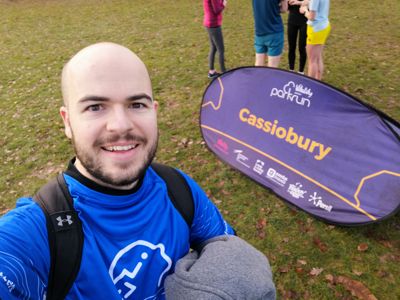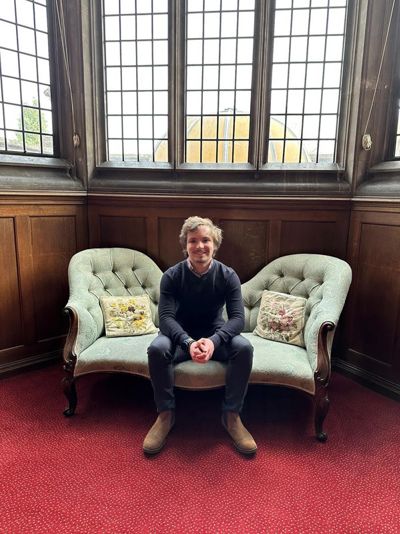“A sense of belonging” – Oliver’s story
19/05/2025
Oliver shares his journey with schizoaffective disorder, complex post-traumatic stress disorder (C-PTSD) and Tourette’s. He now plays wheelchair rugby league and has found a sense of belonging amongst his teammates.
In early 2022, I started to hear God speak to me, which was especially confusing as a lifelong atheist. Things progressed and I believed that I was God’s chosen one; that spilling my blood would purify the land and killing myself would end all the bad in the world.
I was sectioned and diagnosed with schizoaffective bipolar type. This was certainly not my first psychotic episode or the first time I had been sectioned. I was told my schizoaffective was treatment resistant and was started on an antipsychotic.
When discharged from my first hospital admission in 2010, I was diagnosed with emotionally unstable personality disorder (EUPD). Since then I’ve had many other diagnoses and neurodivergent conditions. My EUPD diagnosis was deemed incorrect and has now been removed from my medical records.
-
I started to hear God speak to me
Now my diagnoses include: schizoaffective bipolar type, complex post-traumatic stress disorder (C-PTSD), obsessive compulsive disorder (OCD), autism and Tourette’s. I am a full time wheelchair user due to Tourette’s syndrome, and a full time Augmentative and Alternative Communication (AAC) user, meaning I use a speech device to communicate.
Over the years I have been on and off various medications, and in and out of hospital. I now take six psychiatric medications and continue to go through therapy. However, medication and therapy alone is not enough to keep things manageable. Sport and exercise is really helpful for me.
Back in 2023, I started to play wheelchair rugby league. As a non-binary trans man, who is also a full time wheelchair user, finding an accepting sport was incredibly difficult. Then I found wheelchair rugby league, for all genders, wheelchair user or not. Salford Red Devils, who I play for, were a brand new wheelchair team when I joined, which helped massively with my anxiety.
-
Playing a team sport, such as wheelchair rugby league, is a great way to meet and interact with others
Having a sport and doing exercise is an important part of my life. I’m fully aware that exercise and sport will not ‘cure’ me or make my symptoms disappear. However, sport and exercise can give me a safety net and a break from my symptoms.
It isn’t all good - there have been times when I’ve struggled with auditory and visual hallucinations whilst playing or training for wheelchair rugby league, so much so that I’ve had to come off the pitch. I struggle a lot with my anxiety before kick off in matches. However, once the match starts, my anxiety often reduces and the hallucinations become a bit more manageable.
My complex PTSD can also flare up with the contact nature of the game - shirts can get pulled against my neck, my arms accidentally grabbed, which can trigger memories from being restrained whilst sectioned. I know that this is a contact sport, so I only get triggered occasionally and it doesn’t stop me from playing. It is definitely something I can prepare myself for.
-
Having a sport and doing exercise is an important part of my life
Overall, the exercise releases dopamine and helps to reduce my anxiety. It mostly gives me a break from my chaotic brain! I get a bit of relief from my various hallucinations, severe paranoia, delusions, anxiety and mood difficulties. Wheelchair rugby league has also helped me to not act on suicidal ideation at times.
Playing a team sport, such as wheelchair rugby league, is a great way to meet and interact with others. It gives me a sense of belonging somewhere.



